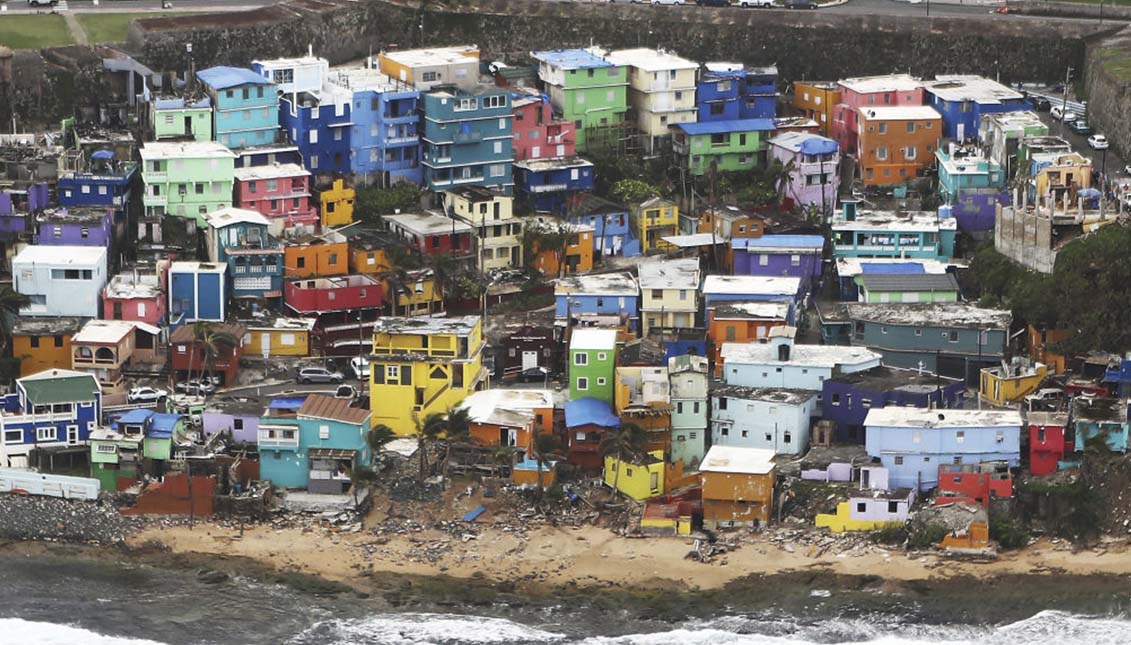
Puerto Rico, epicenter of climate change
While the 200 countries committed to the Paris Agreement meet in Madrid, Puerto Rico occupies first place as the country most affected by natural disasters in…
It was supposed to be a "Latin American climate summit," but Chile's tense political and social climate and Brazil's unsurprising resignation forced Spain to become the host of the UN Climate Summit. However, Latin American countries still have a central role, especially given that they are the ones who are suffering the brunt of climate change. Especially Puerto Rico which, according to a recent study, is most affected by natural disasters in the world, followed by Myanmar, Haiti, the Philippines, and Pakistan.

The central and urgent focus of this United Nations summit, which began last Monday, is to reach an agreement on policies that would limit the increase in the average temperature of the planet to 1.5ºC, in order to prevent the planet from rising to 2ºC, which could be even more devastating, exacerbating the sadly common natural catastrophes.
RELATED CONTENT
Mega-droughts like the one Chile has suffered for ten years, severe floods that drown countries like Peru as its glaciers melt, and much more violent and continuous cyclones than Maria or Dorian, who hit the Bahamas this year, are all examples of natural disasters fueled by climate change. In addition to the rise in sea level due to the melting of the poles, one of the consequences of global warming also affects opulent and high-polluter countries like the United States.
"The climate risk index shows that climate change has disastrous effects, especially for poor countries, but also causes increasingly serious damage in industrialized countries."
The devastation has become "democratic", as the climate tragedy is spreading to countries like Germany, where 1,800 people died during a heatwave, and Japan, which is one of the top rankings of places most damaged by climate change, with almost 1,300 deaths from extreme temperatures, torrential rains last summer and the destructive passage of Typhoon Hagibis in September.
"The climate risk index shows that climate change has disastrous effects, especially for poor countries, but also causes increasingly serious damage in industrialized countries," said David Eckstein, a consultant for Germanwatch, the German organization in charge of conducting the study, which is yet another alarm for action against change.
In order to save other green things beyond bills, UN experts hope that the 200 countries that signed the Paris Agreement –which is to replace the Kyoto Protocols in 2020– will reduce their emissions by 45% in the next ten years, reaching zero by 2050. The question remains as to how to transform economies such as Latin America that depend mainly on fossil fuels.
On the other hand, the funding that's been dedicated to the reconstruction of places devastated by the harsh stalking of hurricanes and floods is still shallow. Are there any support mechanisms? That's a discussion still pending, especially since President Trump not only announced the U.S. withdrawal from the Paris Agreement –alleging that it is a maneuver of the rest to "take advantage" of the most powerful country in the world– but seems to have completely forgotten about Puerto Rico.











LEAVE A COMMENT:
Join the discussion! Leave a comment.